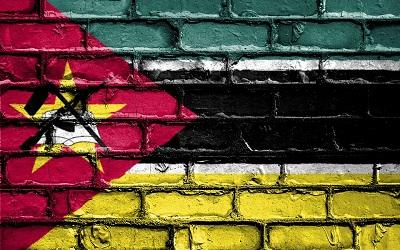Day 118, Year of #Mygration: African Migrants Going South

Today’s blog comes from Joseph Hanlon, a Visiting Research Fellow in the Department of Development Policy and Practice at The Open University who writes extensively about Mozambique.
Movement along the East Africa coast dates back centuries, and forms of Kiswahili are spoken along the coast, including in northern Mozambique, making travel easier. Decades of structural adjustment, growing poverty, and war are forcing young people to look further to try to find an income and better future. Young Tanzanian men have become street traders and become part of smuggling networks in northern Mozambique.
For thousands of Africans, South Africa is the goal, not Britain. Indeed, many Mozambicans work legally and illegally in South Africa. And Mozambique has become a major transit route for people from Somalia, Kenya and the Great Lakes region moving toward South Africa to find a better life.
Organised crime has grown in northern Mozambique, with the illegal export of ivory and wildlife products, timber, and rubies, while Mozambique has been part of a heroin trafficking route to South Africa and Europe for two decades. These networks are also regional, often communicating by WhatsApp. Regional migrants fit into these trafficking and smuggling networks.
The other migrant group in coastal northern Mozambique are the thousands of workers linked to the offshore gas field, one of the largest in Africa, which is now being developed. Again, as part of the neo-liberal model of encouraging foreign investment, the gas companies and the contractors were never forced to train local people or to do serious local sourcing, even of food that can be grown locally.
Disenchanted young men trying to get by with street trading in coastal towns like Palma and Moçimboa da Praia watch the relative wealth in big cars passing them by and see outsiders taking all the construction jobs. Based on social media and radical preachers who have joined with the migrants from the north, hundreds of these young men have turned to a simplified version of fundamentalist Islam to confront both the state and the region's own Islamic elite.
They joined the smuggling networks to earn money, some of which they spent to send members north for military and religious training - using the existing networks that move migrants.
Well enough trained, they finally attacked the town of Moçimboa da Praia in October. Since them more than 50 people have been killed in attacks and fighting with the riot police. They appear to work in small guerrilla groups of up to 10 men, armed mainly with knives and machetes. In Olumbi and Manjane village on 27 May, 10 people were beheaded with machetes.
Migration through Mozambique has increased as young people across East Africa search for a better future. Religious leaders and people involved in illegal trade have moved with the migrants. Now, youth in northern Mozambique, instead of migrating, have chosen to use their links with the migration networks to develop the capacity to challenge both the Mozambican state, and their traditional Islamic leaders. Yet again, it is clear that migration also changes the people who stay at home.
Contact our news team
For all out of hours enquiries, please telephone +44 (0)7901 515891
Contact detailsNews & articles
AI sheds new light on dinosaur footprints
A new publication introduces a transformative AI approach to studying dinosaur footprints, offering researchers (and enthusiasts!) an objective way to classify tracks and investigate the conditions in which dinosaurs lived.